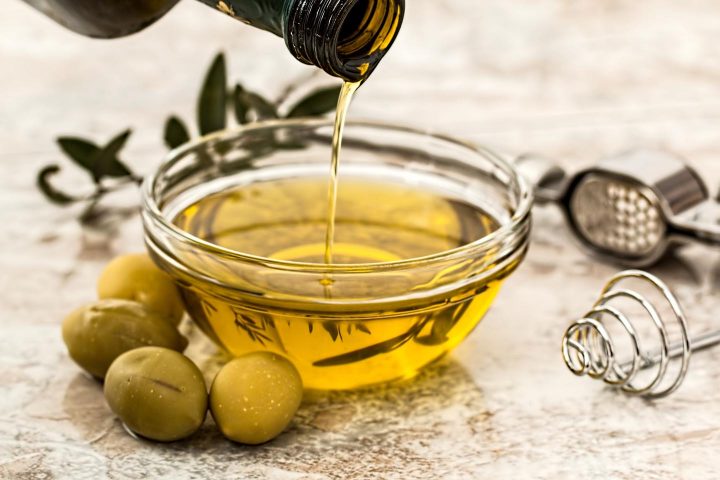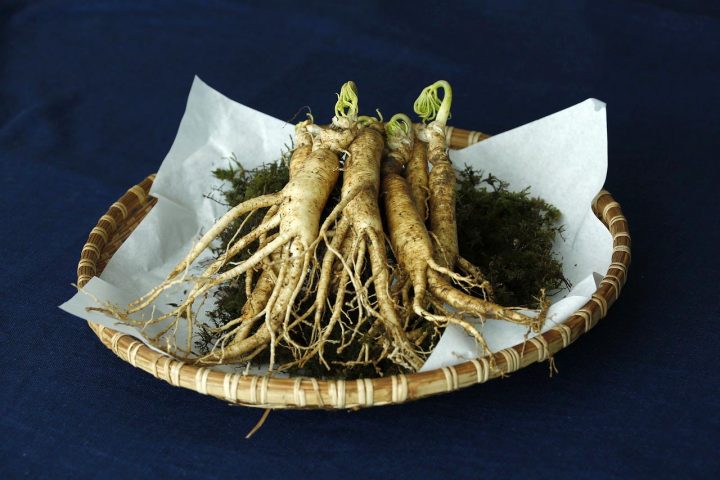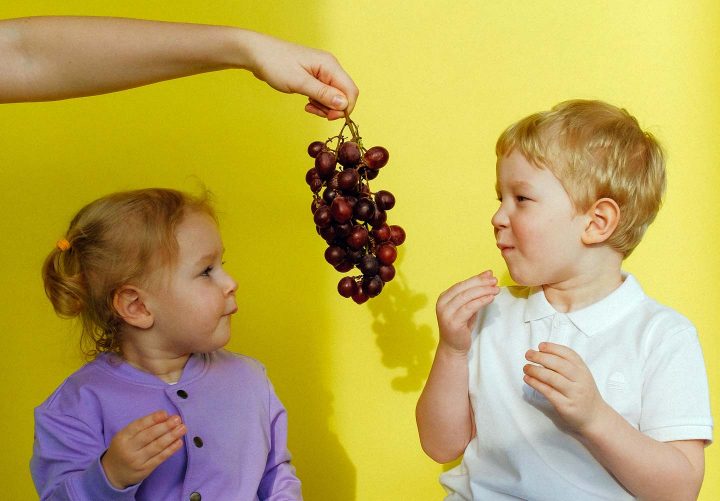One of the main reasons we eat food is to provide us with energy. Without food we would die soon. Plants can assimilate solar energy through their leaves and convert it into chemical energy. Animals and humans cannot do this, they are dependent on food for energy. We are eating energy in the form of carbohydrates, fats, and proteins.

But there are many other substances that the plants provide to us in sometimes tiny amounts. These include vitamins, minerals, trace elements, hormones, enzymes and the numerous phytochemicals. These substances are called secondary plant compounds because they are not essential to the actual, primary metabolism.
The plant forms these substances for its own protection, to ward off diseases and pests, but also to attract beneficial insects, to guarantee reproduction, to protect itself from dehydration and for countless other tasks. Science has found out that precisely these substances are also subservient spirits for us humans, especially in the defense against diseases. Who is surprised that our original, Creator-determined diet comes from the realm of plants?
Power Plants
In almost all of our cells there are tiny little power plants that produce energy for our bodies. It’s the mitochondria. Almost everything we eat sooner or later ends up in these tiny power plants and is turned into energy.
Our body is an ingenious, huge chemical laboratory. The chemical energy generated in the mitochondria is called ATP (adenosine triphosphate). The body needs this energy in order for the muscles to move.
However, energy is also used to produce vital molecules and to carry out transport processes within the cell and from one cell to another. In an adult human, the amount of ATP that is produced every day is roughly equivalent to his body weight.
Coenzyme Q10 plays a key role in the production of energy. This coenzyme is so important that the body produces it itself. To do this, however, he needs a whole range of vitamins and protein. It is also found in every plant, but especially in oil seeds and grain germs. So let’s give preference to cold-pressed vegetable oils and whole grains.

As a dietary supplement in capsules, we should only swallow coenzyme Q10 if it has been proven that the body cannot produce it itself. We do not exactly know the daily requirement of the human being. Numerous studies have been carried out to prove the positive effects of artificially supplied coenzyme Q10. However, no convincing connections have yet been found. It is therefore not advisable to take a dietary supplement without subscription, even if the advertising tempts us to do so.
Protection from Green Leaves
Another important substance that plants provide us with is chlorophyll, the green plant pigment. We can compare it to our red blood pigment. We need chlorophyll for the formation of blood, to strengthen our immune system and the liver metabolism. It also inhibits the development of various types of cancer. The leaves of spinach and nettles, broccoli, wheat and kamut grass contain a great deal of chlorophyll. It is also available in capsules and tablets. But we prefer the whole plant because with it we get many other substances that we need for the provision of various forms of energy. If we eat a lot of green plants, energy is supplied to us almost free of charge.

Brain Food
In order to keep our mental energy in top shape, we need lecithin. Even this the body produces by itself. Lecithin has long been considered a food for the nerves, probably because the nerve cells and especially the brain have high levels of lecithin. But it also serves as a precursor for messenger substances that are needed for the proper functioning of our brain. We find lecithin in soybeans, thus also in soy products, in nuts and seeds, but also in kale.
We also find a lot of vitamin C in the brain. And that in turn is found in fruits and vegetables. Another plant that has positive effects on brain performance is ginkgo. Extracts from the leaves are used to improve blood circulation. Particularly in older people, this can improve the cerebral blood flow, which has a positive effect on memory.
Ginseng also has a stimulating effect on older people. However, there are a lot of inferior preparations on the market, as such products are sold with high profit margins. Controlled, high-quality products are only available from specialist retailers and from pharmacies. Cheap products from the supermarket are often stretched or blended with other substances.

Disease Protection
Our food should also protect us from disease. The many phytochemicals offer a wide range of benefits. Sulphides are the pungent ingredients in the onion family, such as chives, shallots, spring onions, garlic, leeks and Spanish onions. They affect our immune system, our blood clotting and inhibit the deposition of cholesterol in the arteries. Thus, they reduce the risk of cardiovascular diseases.
The bright colors of fruit and vegetables can protect us against cancer, inflammation and circulatory diseases. The color particles belong to the large group of flavonoids. Radishes, red cabbage, aubergine, peppers, red onions and beets, cherries, plums, apricots and peaches, apples and many colorful berries are medicine from nature, without any side effects. And let us not forget the cleansing energy of many plants. Many wild plants such as dandelion, nettle, milk thistle and chicory, to name just a few, help our liver with its versatile task. But even here, the body itself builds many protective walls against diseases. They are the body’s own enzyme systems. To do this, he needs many components from the plant kingdom: especially vitamins and trace elements. Selenium plays an important role in the defense against disease-causing processes. We find selenium in nuts, mostly in the Brazil nut. Soybeans and whole grains are also possible sources.
Nourishment for the Soul
Using food we can also nourish our soul. Eating is enjoyment and an expression of the joy of life. But to enjoy it you need time. Let us therefore eat slowly and enjoy the taste of our food. It is not the amount, but the taste that defines the enjoyment. A bar of chocolate, eaten like a piece of bread, only awakens the guilty conscience and does not bring any pleasure. But it doesn’t necessarily have to be chocolate. Put a piece of banana on your tongue and take in the taste for a while with your eyes closed! What a pleasure! Just like chocolate, bananas also contain the messenger substance serotonin, as well as the precursor tryptophan. From this amino acid, the messenger substance serotonin can be formed in the brain. This substance causes body and soul to relax.

Other foods high in tryptophan include: nuts, sesame seeds, pineapples, strawberries and raspberries, potatoes, onions and peas. Tryptophan reaches the brain easier if we eat it in combination with carbohydrates, i.e. bread, rice, pasta, oatmeal, muesli. The carbohydrates cause our blood sugar levels to rise. This also increases our insulin level. Insulin, in turn, preferentially binds other amino acids, but not tryptophan. In this way, more tryptophan reaches the brain and helps to increase serotonin, the “happiness messenger”. So it’s no wonder that low carb diets really upset our emotions.
Variety
A varied, natural, plant-based diet gives us energy in various ways. In addition, there is no food that stimulates our senses in such an enjoyable way as fruit and vegetables. Bright colors, fragrant scents, pleasant taste make us come back to these healthy energy donors again and again. Let’s make good use of the enormous diversity of fruits and vegetables for our health!

Stay Always Up to Date
Sign up to our newsletter and stay always informed with news and tips around your health.

Esther Neumann studied Nutrition at the University of Vienna. Since then she served as an author for the health magazine “Leben und Gesundheit” and conducted health lectures in various locations of Austria.
I agree with all except. ” cold-pressed vegetable oils”. Stick
with the seeds and grains as the best sources. Why not free
oils? Dr McDougall, Dr Michael Greger, Dr Esselstyn, and
others all tell us that free oils ( even the best processed ) do
upset the natural flora of the gut; causing it to grow bacteria
that is not healthy. It is the way that the free oils digest. They
do not have the surrounding fiber, vitamins, phytochemicals
that the regular seeds and grains do. Read their research for yourself.
Yes there are different opinions on the use of vegetable oils. If you do not eliminate them all together, you should probably limit their intake, like we are doing for this moment. Any kind o oil in excess will also add extra calories and slow down digestion.